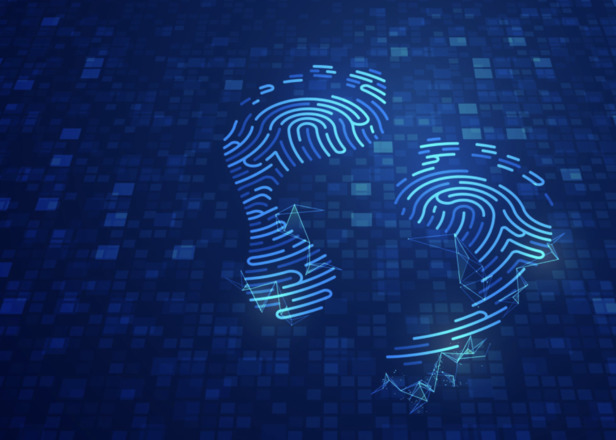Securing Your Digital Footprint: Strategies and Resources for Online Privacy

Safeguarding online privacy has emerged as a fundamental necessity in today’s world. As the divisions between the digital and physical realms blur, the separation between your online data and personal safety also becomes less distinct.
This article aspires to guide you in bolstering your confidentiality on the Internet. We will delve into potential risks, offer pragmatic protection tactics, and highlight beneficial tools to enhance the security of your digital existence. Let’s commence our journey of empowering you to assert control over your digital footprint today.
Understanding Online Privacy
Online privacy, aka Internet privacy or digital privacy, encompasses the security of personal data published via the Internet. It is the aspect of information technology that deals with the ability of an individual or group to seclude information about themselves and thereby express themselves selectively. This includes controlling the extent to which personal information is shared and who has access to it.
In essence, online privacy measures the confidentiality you can expect when sharing information online, browsing websites, engaging on social media platforms, or even using connected devices that communicate data about you. It’s about asserting and maintaining control over the type and amount of information collected about you on the internet.
Risks of Neglecting Online Privacy
Neglecting confidentiality on the Internet can lead to a myriad of risks, both for individuals and businesses. For individuals, the risks can range from identity theft, stalking, bullying, and blackmail, to the unwanted collection and analysis of personal information leading to unsolicited targeted advertising.
For businesses, the stakes are even higher. Data breaches can expose sensitive customer information, trade secrets, and other confidential data, leading to significant financial loss, damage to reputation, and legal penalties. Moreover, compromised business data can also result in fraud and financial crimes.
In both cases, the invasion of privacy can have far-reaching psychological impacts, causing stress, fear, and a feeling of constant surveillance.
Common Threats to Online Privacy

While a powerful tool for communication and information, the internet is also fraught with threats that can compromise your privacy. Here are some of the most common threats you should be aware of:
- Identity Theft
Identity theft is a prevalent threat to confidentiality on the Internet. It involves the unlawful use of another person’s identifying data, usually for financial gain, deception, or fraud. Cybercriminals can obtain these details through various means, including online shopping, banking, or social networking sites, if proper precautions are not taken. To impersonate the victim, they may steal information such as credit card details, social security numbers, or other personal identifiers.
- Data Breaches
Data breaches occur when unauthorized individuals gain access to confidential data, often with malicious intentions. These breaches can involve unauthorized access to customer databases, employee records, or proprietary business information. The scale of such breaches can vary significantly, from minor incidents affecting a small group of individuals to massive events that jeopardize the data of millions.
- Online Tracking
Online tracking is another significant threat to online privacy. Various entities, including advertisers, social media platforms, and analytics companies, often employ cookies, web beacons, and other tracking technologies to monitor your online activities. This information can be used to build detailed profiles of your interests, behaviors, and preferences. Afterward, this data can be used for targeted advertising or, worse, sold to other parties.
- Phishing and Scam Emails
Phishing and scam emails are prevalent tactics used by cybercriminals to trick you into revealing sensitive information, such as login credentials or credit card numbers. These communications often appear from reputable sources and may use urgent or threatening language to convince you to act. Unfortunately, falling for these scams can lead to identity theft, financial loss, and compromising your confidentiality on the Internet.
Securing Your Digital Footprint

Preserving the security of your digital footprint requires proactive measures and a comprehensive understanding of how to protect your personal information. Here are some effective strategies to safeguard your digital presence and maintain confidentiality on the Internet:
Importance of Strong, Unique Passwords
Strong, unique passwords are the first defense in securing your digital footprint. They serve as a barrier between your personal information and potential intruders. Using a unique password for each online account ensures that the others remain secure if one account is compromised. Moreover, a strong password – ideally consisting of a mix of letters, numbers, and special characters – is more problematic for hackers to crack using brute force attacks.
Role of Two-Factor Authentication
Two-factor authentication (2FA) adds an additional level of protection to your accounts on the Internet. This system requires not only a password and username but also something that only the user can provide (like a piece of information only they should know or have immediately at hand). For example, this could be a code sent to your phone or a biometric identifier like a fingerprint or face recognition. By enabling 2FA, you significantly reduce the risk of unauthorized access to your accounts.
Benefits of Virtual Private Networks (VPNs)
VPNs create a private network from a public internet connection, providing anonymity and security. When you use a VPN, your internet connection is rerouted through a specially configured remote server. It changes your IP address and encrypts all the data you send or receive. The encrypted data is unreadable to anyone who intercepts it, making it an excellent tool for protecting online privacy, especially when using public Wi-Fi networks.
Significance of Secure Web Browsing (HTTPS)
HTTPS (Hypertext Transfer Protocol Secure) is the secure version of HTTP – the protocol for sending data between your browser and the website you’re connected to. You can identify a website using HTTPS by the padlock symbol in the URL bar. HTTPS ensures that all communication between your browser and the website is encrypted, making it much harder for anyone to intercept or tamper with your data.
The Necessity of Regular Software and Application Updates
Regular software and application updates are critical to securing your digital footprint. These updates often include patches for known security vulnerabilities that hackers could exploit. Keeping your devices and applications updated helps ensure that your digital defenses are as robust as possible, reducing the risk of a successful attack.
Strategies for Protecting Personal Information Online

Protecting personal information online is of utmost importance in today’s digital landscape. To help safeguard your privacy, here are some effective strategies you can implement:
Responsible Sharing on Social Media
Sharing personal information on social media can put your privacy at risk. Therefore, it’s essential to be mindful of what you’re posting. Especially it refers to location data, photos, or any personally identifiable information (PII). It’s also recommended to regularly review and adjust your privacy settings to limit who can see your posts and personal details.
Data Encryption
Data encryption converts your data into a code that can only be accessed with a key or password. It’s a vital tool for protecting sensitive data from unauthorized access, particularly when it’s being transferred over the internet or stored in the cloud. Consider using end-to-end encryption for communication, such as in messaging apps or emails, and for data storage.
Deleting Cookies and Browsing History
Cookies are small files that websites store on your computer to remember your preferences and track your online behavior. Regularly deleting your cookies and browsing history helps protect your privacy by making it harder for websites to track you and build a profile of your online behavior.
Using Privacy-Focused Search Engines and Browsers
Privacy-focused search engines and browsers do not track your searches or sell your data to advertisers. Instead, these tools can provide a safer, more private browsing experience. Examples include search engines like DuckDuckGo and browsers like Tor or Brave.
Learning About Email Phishing and Spam Filters
Phishing emails are a common online threat that can trick you into revealing sensitive data. Therefore, understanding how to identify and avoid these threats is crucial. Most email services offer spam filters that can help, but they aren’t perfect. Thus, learning to recognize the signs of a phishing email – such as urgent or threatening language, poor grammar, or email addresses and links that don’t look quite right – can significantly enhance your online safety.
Special Considerations

While general strategies for protecting confidentiality on the Internet are crucial, particular special considerations need to be addressed as well.
Online Privacy for Children and Teenagers
The internet can be a treacherous landscape for young users. Therefore, educating children and teenagers about online privacy risks and teaching them how to navigate the Internet responsibly is essential. This may include guidance on not sharing personal information, adjusting social media privacy settings, and understanding online posts’ potential permanence. Parental control tools can also help protect younger users from inappropriate content and probable online threats.
Privacy Considerations When Using Public Wi-Fi
Public Wi-Fi networks, such as those in cafes, airports, or libraries, are typically unsecured, making them a potential goldmine for cybercriminals. When using these networks, avoid accessing sensitive data like bank accounts or personal documents. Utilizing a VPN can provide an extra layer of security by encrypting your data and shielding your online activities from prying eyes.
Additional Resources

To further deepen your knowledge and understanding of confidentiality on the Internet, we have compiled a list of valuable resources encompassing websites, books, and other sources that provide extensive information on the subject. Explore these resources to enhance your awareness and proficiency in safeguarding your online privacy.
Websites
- Privacy Rights Clearinghouse: A comprehensive resource on practical strategies for protecting your confidentiality on the Internet.
- Electronic Frontier Foundation: A non-profit organization dedicated to defending civil liberties in the digital world.
- National Cybersecurity Alliance: Offers tips, advice, and resources for securing your online presence.
Books
- “The Art of Invisibility” by Kevin Mitnick: A book that provides a deep dive into the risks of the digital age and how to protect your privacy.
- “Data and Goliath” by Bruce Schneier: This book discusses the ways governments and corporations access personal data and offers solutions for those concerned about privacy.
- “Privacy’s Blueprint: The Battle to Control the Design of New Technologies” by Woodrow Hartzog: Discusses the relationship between technology design and privacy.
Other Resources
- TED Talks on Privacy: A collection of insightful talks on privacy featuring experts in the field.
- “The Age of Surveillance Capitalism: The Fight for a Human Future at the New Frontier of Power” by Shoshana Zuboff: This book reveals the consequences of the digital age on our society and personal lives.
- The Privacy, Security, & OSINT Show (Podcast): A podcast covering privacy, security, and open-source intelligence.
Bottomline
In conclusion, maintaining your online privacy and securing your digital footprint is paramount in our interconnected world. By understanding common threats and employing effective protective measures, we can all take control of our own digital destinies. The resources and strategies outlined in this article are not exhaustive yet provide a solid foundation for your privacy journey. With consistent effort and informed decisions, you can enjoy the benefits of the digital world while ensuring your personal information remains secure. Remember, in the realm of confidentiality on the Internet, knowledge is power, and the choice to act is in your hands.
